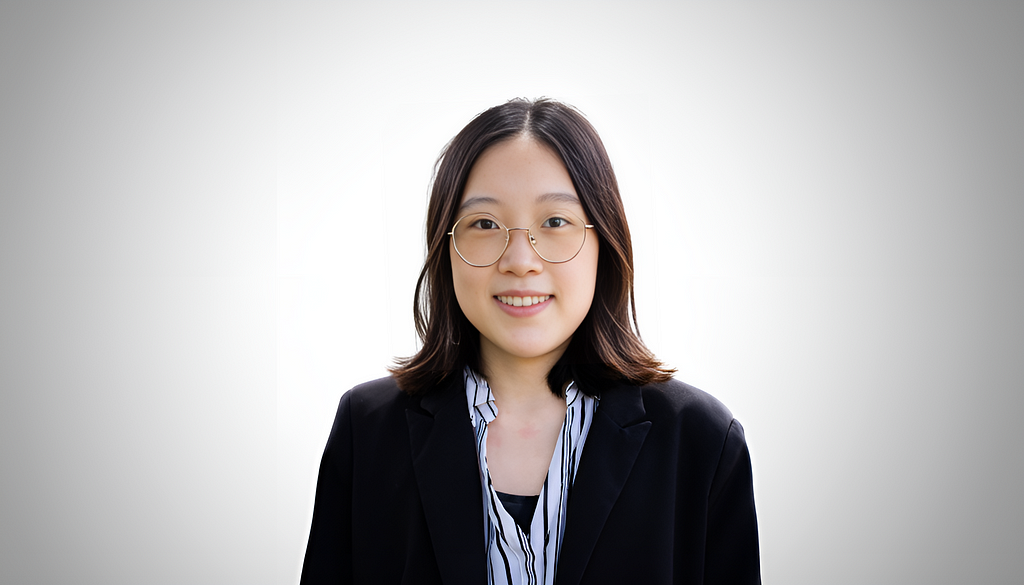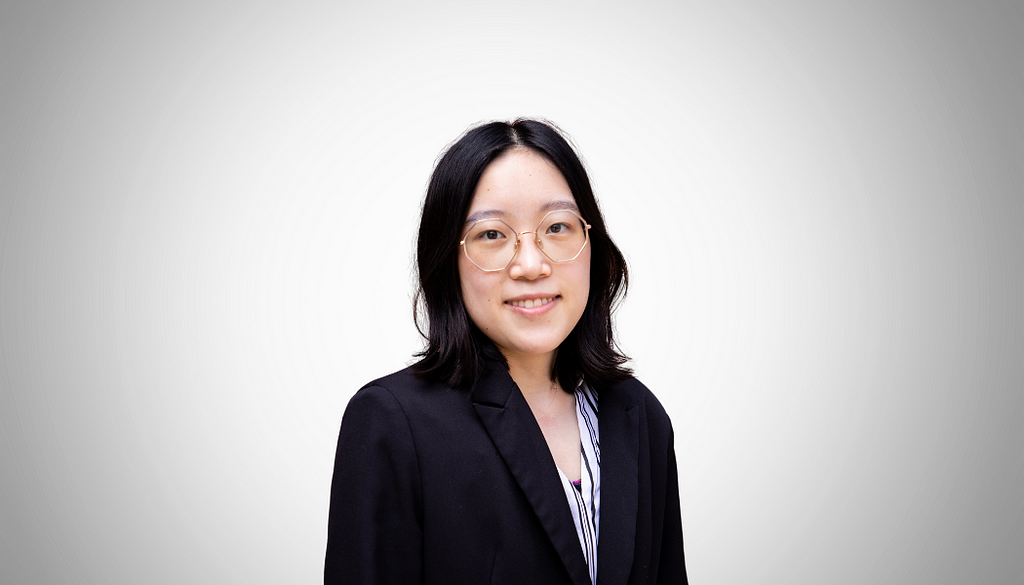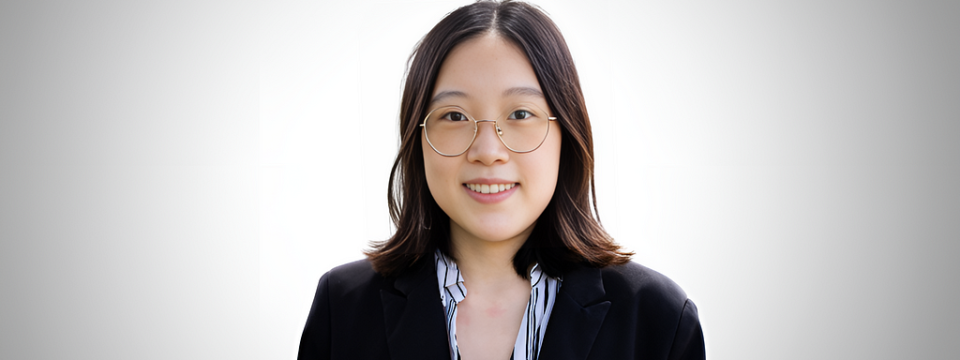
…If I could inspire a movement, it would promote mutual respect and the understanding that it’s okay to hold different opinions without disrespecting one another. The idea would be to disagree with the idea, not the person…
As part of my series about “individuals and organizations making an important social impact”, I had the pleasure of interviewing Dr. Qiushan Liu. Dr. Qiushan Liu is an Assistant Professor of Psychology specializing in groundbreaking research on math learning and cognition, with a focus on how psychological principles can transform educational outcomes in the United States. With a Ph.D. in Developmental Psychology from Florida State University, Dr. Liu’s work explores how cognitive and emotional factors impact math learning, problem-solving, and strategy selection. Recent studies indicate that nearly 60% of American students struggle with math proficiency. Her crucial research addresses this gap by investigating how strategic decision-making in math can improve problem-solving skills across diverse age groups, with the potential to reshape educational approaches on a national scale.
Dedicated to fostering the next generation of researchers, Dr. Liu mentors students at UW-Green Bay, offering them hands-on research opportunities. Her work not only advances academic understanding but also aims to inform policy and practice, ultimately contributing to a more knowledgeable, competitive, and cohesive society.
Thank you so much for joining us in this interview series! Can you share the most interesting story that happened to you since you began leading your company or organization?
Growing up, I always admired my teachers and dreamed of being in a role where I could guide and inspire students to achieve their goals. I remember when my math teachers introduced me to problem-solving strategies in math that made a challenging topic suddenly feel accessible. That experience not only deepened my love for math but also made me curious about how teaching methods can transform a student’s understanding and confidence.
This curiosity stayed with me through college, where I had the opportunity to work in developmental psychology labs. These experiences helped me realize that my passion wasn’t just about teaching but also about understanding how students learn. My current position at the university allows me to combine these interests — to conduct meaningful research on math learning while also helping students grow and achieve their potential. It’s incredibly fulfilling to know that my work contributes to improving educational experiences for students.
It has been said that our mistakes can be our greatest teachers. Can you share a story about the funniest mistake you made when you were first starting? Can you tell us what lesson you learned from that?
When I first started my academic career, one of the biggest mistakes I made was underestimating the importance of time management. I was eager to make an impact with my research, and in doing so, I took on a lot of research projects, took classes, and started teaching. However, this quickly led to burnout.
There was a point when I was preparing for an important conference presentation, while also trying to meet deadlines for multiple research projects and balancing my teaching responsibilities. I remember working on the weekends, trying to balance everything and being very overwhelmed.
The lesson I learned from this experience was that it’s crucial to set boundaries and manage my time wisely. It’s easy to feel like saying “yes” to everything will make you more productive or respected, but it can lead to lower quality work and burnout. Since then, I’ve learned to prioritize tasks, delegate when possible, and block off time for myself to recharge. This not only improved the quality of my work but also helped me maintain a healthier balance between my professional and personal life.
That experience was humbling, and it taught me that saying “no” or setting boundaries isn’t a sign of weakness but a way to ensure I can deliver the best work and support others effectively.
Can you describe how you or your organization is making a significant social impact?
I believe I am making a significant social impact through my research, community outreach, and my work with students.
First, my research focuses on understanding how we solve math problems and how to best support math learning. This work addresses a critical challenge: U.S. students continue to lag behind their international peers in math performance. For example, an international assessment revealed that U.S. 8th-grade students perform below the average across participating countries. Math is foundational for success in many fields, and my research aims to inform educators and policymakers on how to enhance math education and improve students’ learning experiences.
Beyond research, I am deeply engaged in community outreach. I have conducted multiple professional development sessions for math teachers in local school districts, sharing research-based strategies and practical tips they can implement in their classrooms. I also connect with the broader community through events like “math nights” at local libraries, where students engage with math in fun and creative ways. Additionally, as a long-time participant in Skype a Scientist program, I have shared my research with students worldwide, making science and math more accessible and inspiring curiosity in learners of all ages.
Finally, as a faculty member at the University of Wisconsin-Green Bay, I create a social impact by teaching and mentoring undergraduate students. Collaborating with them on research and helping them achieve their academic and professional goals is one of the most rewarding aspects of my work. Whether through my research, community initiatives, or classroom interactions, I am committed to making a meaningful difference in the lives of students and the broader educational community.
Can you tell us a story about a particular individual who was impacted or helped by your cause?
During my time at Florida State University, I had the privilege of working closely with several undergraduate students, guiding them in research and supporting their academic aspirations. One particular student stands out — she was highly motivated and passionate about improving student outcomes. She had a deep interest in studying interventions that could enhance academic performance.
Together, we collaborated on developing a research idea that aligned with her interests and allowed her to take the lead. I helped her refine her project, providing guidance on research design and methodology. Over time, she became more confident in her abilities, taking ownership of the project and driving it forward.
I’m proud to say that she’s now working on her honors project, and she has even applied to graduate schools to further her research career. Seeing her grow from a student with an idea into someone who is now pursuing advanced studies and contributing to the field of education has been incredibly rewarding. Her success feels like a direct reflection of how impactful mentorship and hands-on research experience can be in shaping students’ futures.
It’s fulfilling to know that I played a small part in helping her find her path and take steps toward achieving her professional goals. It reinforces my belief in the power of education and mentorship to change lives.
Are there three things the community/society/politicians can do to help you address the root of the problem you are trying to solve?
One of the reasons U.S. students often struggle with math can be traced to societal attitudes and educational policies that inadvertently downplay the importance of math. To address this, I believe the following steps would be crucial:
- Change societal attitudes toward math:
As a society, we need to stop perpetuating the notion that “math is hard” or “math is not for everyone.” These stereotypes discourage students from embracing math and striving to improve. Instead, we should foster a growth mindset, encouraging students to view math as a skill they can develop with effort and practice. - Revaluate math education policies:
At a policy level, we should reconsider the minimal math requirements in high school, which often allow students to stop at basic courses like geometry or algebra. Encouraging or even requiring students to take more advanced math courses would better prepare them for higher education and the workforce, helping to close skill gaps in STEM fields. - Support and empower teachers:
Teachers play a pivotal role in shaping students’ attitudes and abilities in math. Providing more professional development opportunities, equipping them with better resources, and ensuring that preserve teachers are thoroughly prepared before entering the classroom can help create a stronger foundation for math education.
How do you define “Leadership”? Can you explain what you mean or give an example?
To me, leadership is the ability to inspire, guide, and support others as they work toward achieving their goals. It’s not about commanding or directing — it’s about creating an environment where people feel motivated and empowered to succeed.
For example, as the director of my research lab, I am technically in a leadership role. However, I see myself as more of a collaborator than an authority figure. I work closely with my students, supporting them in their research and helping them develop the skills and confidence they need to achieve their professional goals. Leadership, in my view, is about fostering a partnership where everyone feels valued and has the opportunity to grow.

What are your “5 things I wish someone told me when I first started” and why. Please share a story or example for each.
- Time management and setting boundaries are crucial: Early on, I overcommitted and spent many weekends working, which led to burnout. I eventually learned the importance of blocking off personal time to avoid overwhelming myself.
- Be patient with yourself: Research and student progress take time. I wanted to see immediate results, but I learned that things don’t always unfold quickly. Staying patient and persistent, even when you can’t see progress right away, has been key.
- It’s okay to not have all the answers immediately: Early in my career, I felt pressured to have all the answers. Over time, I realized it’s okay to admit when you don’t know something. For example, now when a student ask me a question I don’t have answer immediately, I would look for the answer with the student together.
- Celebrate your success and failures: In academia, rejection is common, but I’ve learned that it’s part of the process. I even created a “rejection CV” to track rejections, and I celebrate when I hit milestones like 50 rejections, recognizing that every rejection is a step toward progress.
- Don’t be afraid to ask others for help: Early on, I was hesitant to reach out for help or network with others in the field. Over time, I realized that most people are willing to help, and connecting with others can lead to meaningful relationships. For instance, conducting informational interviews during my job search led me to new friendships and support.
You are a person of enormous influence. If you could inspire a movement that would bring the most amount of good to the most amount of people, what would that be? You never know what your idea can trigger. 🙂
If I could inspire a movement, it would promote mutual respect and the understanding that it’s okay to hold different opinions without disrespecting one another. The idea would be to disagree with the idea, not the person.
This principle is something I strive to foster in my classroom. I encourage my students to engage in debates and discuss differing perspectives on various topics, but I emphasize that the discourse should remain focused on the ideas, never turning into personal attacks. I believe that fostering this level of respect and open dialogue can lead to healthier relationships, stronger communities, and a more empathetic society.
Can you please give us your favorite “Life Lesson Quote”? Can you share how that was relevant to you in your life?
One of my favorite life lesson quotes is, “Education is not the filling of a pail, but the lighting of a fire.” This quote deeply resonates with me because it reflects the essence of my role as both a researcher and an educator.
While imparting knowledge and teaching content is undoubtedly important, I believe my ultimate goal is to inspire my students to become lifelong learners. I strive to equip them with the tools to think critically, continue their learning journey independently, and approach the world with curiosity and analytical thinking. For me, it’s not just about training students for immediate outcomes, but about fostering a mindset that will serve them for a lifetime.
Is there a person in the world, or in the US with whom you would like to have a private breakfast or lunch with, and why? He or she might just see this, especially if we tag them. 🙂
I would love the opportunity to have a private breakfast or lunch with Dr. Miguel Cardona, the current U.S. Secretary of Education. As someone deeply involved in education, I admire Dr. Cardona’s focus on addressing disparities within the educational system.
I would be eager to learn from his perspective on how educational policies are developed and implemented, especially those aimed at creating more equitable opportunities for all students. Understanding how changes at the policy level can support broader systemic improvements in education would be invaluable to my work as a researcher and educator.
This was very meaningful, thank you so much. We wish you only continued success in your great work!
Social Impact Heroes: Why & How Dr. Qiushan Liu Is Helping To Change Our World was originally published in Authority Magazine on Medium, where people are continuing the conversation by highlighting and responding to this story.
